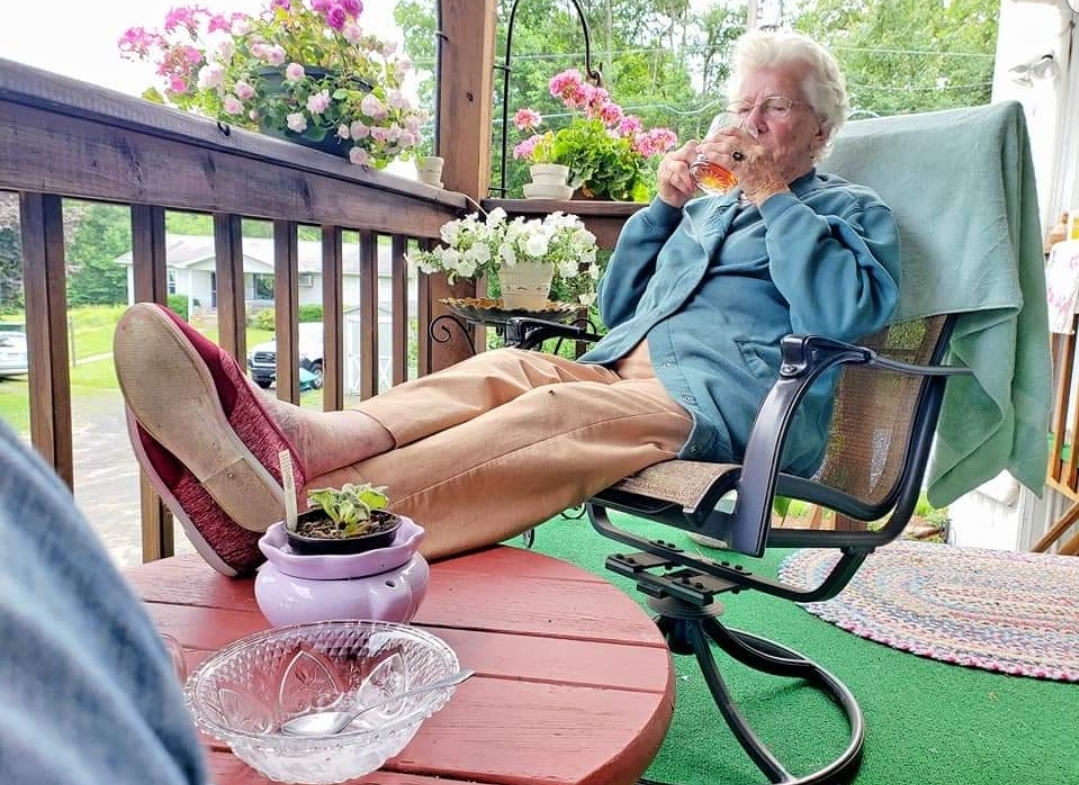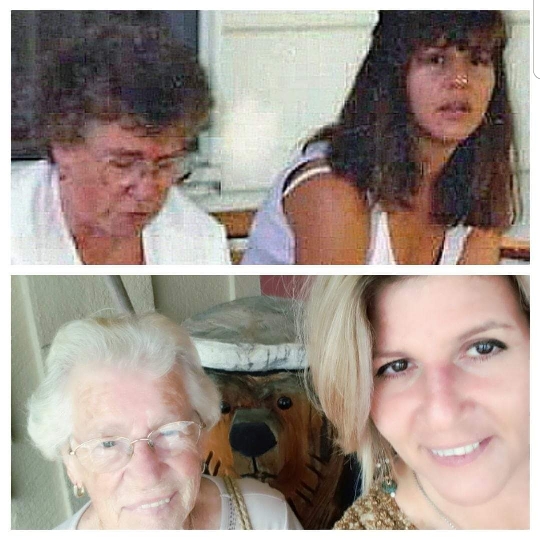View this post on Instagram
Lessons from my grandmother on old-fashioned values:
“Research in human development clearly shows that the seeds of empathy, caring, and compassion are present from early in life, but that to become caring, ethical people, children need adults to help them at every stage of childhood to nurture these seeds into full development.” ~ “For Families: 7 Tips for Raising Caring Kids,” Harvard
Hey, let’s grab a cup of tea and talk about the woman you admired most growing up. Has this woman taught you any old-fashioned lessons on basic human values?
My grandmother is the woman I respect the most.

I have looked up to her since childhood, and as a child, I took every chance I could to spend with her. Her old-fashioned ways of living had a powerful influence on my upbringing.
She is nearly 91 years old, and I am finding this truth difficult but inevitable: her journey of wandering this earth is coming to an end. Her once dark, brown hair is now completely white. Her hearing is mostly gone, and the last few times I stopped by for a cup of tea and a visit, I felt how frail her body has become as I embraced her.
Today, I want to honor her and all of the women who have had an impact on our lives.
“When she smiles, the lines in her face become epic narratives that trace the stories of generations that no book can replace.” ~ Curtis Tyrone Jones
When our youthful days have passed us by, we often start to look back on our lives. We wonder what our children have learned from us and hope we have passed on the lessons we were taught from our elders.
These grandmotherly role models are respected women who pass on basic values of humanity: respect, integrity, loyalty, empathy, and hard work. Sadly, every year that goes by, another one of these women are taken from us, and with them, their valuable lessons.
“Good, old-fashioned ways keep hearts sweet, heads sane, hands busy.” ~ Lousia May Alcott
My grandmother instilled her old-fashioned values in every situation, no matter the trouble I found myself in. After a scolding, she would usually sit me down to reinforce her teachings and explain where I strayed in my choices. She directed and redirected me on how to behave like a young lady, even if I thought her ways were outdated.
When I was about 13 years old, I was taught a valuable lesson on respect, integrity, and empathy from my grandmother. We were standing in her kitchen, talking, and I called one of my friends a liar. She said, “A young lady does not use such a curse word. We say, ‘fibber.'” I argued, “It is not a curse word!”
She didn’t like me disagreeing with her, and promptly told me to go home. Instead, I sat on her back porch step, angry that she’d scolded me for using a common word.
Well, it wasn’t long before she came out the back door and sat down next to me. She handed me a warm chocolate chip cookie, and then followed that with, “You know I love you, but a young lady should not speak with such vulgar words.”
We mustn’t let the simpler ways of our ancestors turn into forgotten ways, or an archive of “how it used to be.” It is our obligation to learn their customs, pass them on to our youth, and preserve some of those old-fashioned values.
We have heard many stories from our grandmothers, but have we passed these stories on to our daughters?
My great-grandmother used to hand-braid rugs. She taught my grandmother, who then passed this tradition down to me. We spent hours cutting the material into thin one-inch strips, folding in the edges, and braiding them. During those moments, we chatted about anything and everything that bothered me.
It was time well spent, an opportunity to braid rugs, sip tea, and listen to stories of my father’s childhood. It was a process we enjoyed for years—a tedious chore of braiding the strands and hand sewing them together, but one that demanded loyalty.
A favorite hobby passed on by my grandmother was loving and caring for plants. My grandmother spent hours raising her own vegetable and flower gardens. As a little girl, I remember swinging on her front porch glider as we snapped the ends of the green beans we had just picked out of her garden. By watching her, I learned how to grow my own vegetables, and when I got married, she shared the art of canning and preserving our harvest.
Not only do these honorable women have traditions to teach us, they have wise advice to offer—if we care to take heed.
I can still hear her wise words on finances:
“Always pay God first and yourself second. Pay your bills on time and live a frugal life.”
I’ve also picked up her thrifty ways of saving money. They’re simple things, such as hanging our laundry on a clothesline to save energy, buying second-hand clothes, saving the ends of celery for home-made soup, and thinking for a week on a purchase instead of just buying it. Most of the time I do not need it, and my grandmother’s lesson rings true.
As I write these words, my mind drifts to all the puzzles we put together while sharing a cup of tea. All the long conversations we shared swinging on her front porch, watching the cars drive by. I find myself contemplating my own life.
I wonder, am I doing my part to guide our youth in the lessons I was taught by my grandmother?
I have done my best in directing my children with the same lessons my grandmother passed to me, even with basic cooking lessons and teaching them how to do laundry at a young age. I introduced them to my love of gardening by setting aside a small plot in the yard for their little hands to dig in. When I disciplined them, I always explained why and said, “I love you.”

However, over the last few years, I have figured out why my grandmother enjoyed all the moments we shared—the lessons she taught me have come full circle.
I now have two granddaughters of my own, and my youngest granddaughter mimics my every move.
That little girl wants to do everything her grandma (“Muma”) is doing. I have found myself passing on my love of gardening to her. I take great pleasure in watching her dig in the soil with her little hands. Watching her face light up with joy as she harvests the end of the season vegetables, I wonder, will she pass this on to her grandchildren, too?
How grateful I am to have five generations of women passing on the traditions of our elders.
For now, I will keep taking my granddaughters to see my grandmother, and hope that as they get older, I can continue to share the tradition of braiding rugs over a cup of tea—instead of them learning from YouTube or Pinterest.
Keep the old-fashioned values and customs alive, and make them hands-on.
We can sit down with an older woman, share a cup of tea, and learn of their customary ways instead of searching a “how-to” on Google—in other words, learning it the old way.
Those of us who are mature women have a responsibility to share with the young women in our lives what we have learned from the female elders we have been honored to know.
We must preserve these traditions and keep the ways of the past alive before they become a lost, forgotten way of life.
When my granddaughter asks, “Muma, can we have a tea party?” I smile and I realize I am doing my part to pass down a family tradition to another generation.
~











Read 15 comments and reply